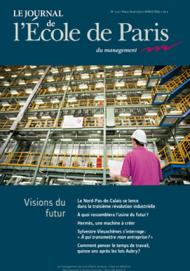Taking stock: fifteen years after Aubry's law on the 35-hour working week
Michel de VIRVILLE
Former director, human resources, Renault; In charge of consultation about hardship in the workplace
Seminar Guest speakers | Monday October 13, 2014 - 18h00 - 20h15
Martine Aubry was the Minister for Employment at the end of the 1990s in France. She implemented a series of employment laws called the ‘lois Aubry’, including a law for a 35-hour (cf. 39-hour) working week. Since these laws were put in place‚ there has been no end to the political controversy regarding the merits – or otherwise – of a reduction in working time (RTT: réduction du temps de travail), and the suppression of the 35-hour working week has been a topic of every general election since. However, businesses and trade unions have demonstrated extreme caution in re-opening discussion about working time. Why the difference? In the field, the question seems to be much more complex. The RTT agreements, signed fifteen years ago, gave structure to the organisation of work and are fresh in people’s memories. However, the extent and speed of changes in the work environment (issues about competition‚ the development of mobile tools of communication and of networking‚ the link between the world of work and leisure‚ and changes in jurisprudence) prompt us to think again about the subject. Will it be possible to go beyond discussion for or against the 35-hour week?
The entire article was written by:
Sophie JACOLIN



No comments yet